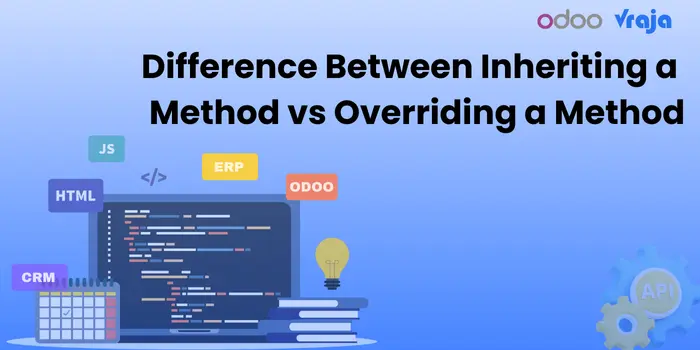
Difference Between Inheriting a Method vs Overriding a Method
1. Inheriting a Method
✅ Definition:
An inherited method is a method that is not redefined in the child class but is available for use because the class inherits from a parent that defines it.
✅ Behavior:
- You can use the method directly in your class.
- You do not change its logic.
- You're simply benefiting from the existing functionality.
✅ Odoo Example:
class CustomSaleOrder(models.Model):
_inherit = 'sale.order'
def some_custom_logic(self):
self.action_confirm() # This method is inherited from 'sale.order'
- Here, action_confirm() is inherited. You are calling it as-is, without changing its logic.
2. Overriding a Method
✅ Definition:
An overridden method is a method that is explicitly redefined in your child class to modify or extend its original behavior.
✅ Behavior:
- You can change the behavior completely.
- Or you can add extra logic before or after calling the parent method using super().
✅ Odoo Example:
class CustomSaleOrder(models.Model):
_inherit = 'sale.order'
def action_confirm(self):
# Custom logic
_logger.info(f"Confirming sale order: {self.name}")
# Call original method
return super().action_confirm()
Here, action_confirm() is overridden — the method exists in the parent, and you are modifying its behavior.
🧠 Key Differences
Criteria | Inherited Method | Overridden Method |
Defined in child class | ❌ No | ✅ Yes |
Logic changed | ❌ No | ✅ Yes |
Uses super() | ❌ Not applicable | ✅ Usually |
Purpose | To use parent method | To customize parent method |
Example | Call action_confirm() as-is | Redefine action_confirm() to add logic |
✅ Summary
- Inheriting a method: Using it without changing its logic.
- Overriding a method: Redefining it to change or extend its behavior.
Every overridden method is inherited, but not every inherited method is overridden.